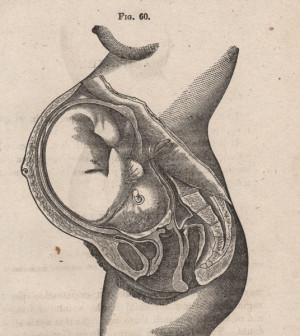- Could Artificial Sweeteners Be Aging the Brain Faster?
- Techniques for Soothing Your Nervous System
- Does the Water in Your House Smell Funny? Here’s Why
- Can a Daily Dose of Apple Cider Vinegar Actually Aid Weight Loss?
- 6 Health Beverages That Can Actually Spike Your Blood Sugar
- Treatment Options for Social Anxiety Disorder
- Understanding the Connection Between Anxiety and Depression
- How Daily Prunes Can Influence Cholesterol and Inflammation
- When to Take B12 for Better Absorption and Energy
- Epsom Salts: Health Benefits and Uses
Fewer U.S. Hospitals Send New Moms Home With Formula


While the percentage of hospitals that send breast-feeding mothers home with formula packs has fallen dramatically during the last several years, about one-third of U.S. hospitals still do so, newly released data shows.
The formula packs usually contain infant formula samples, infant formula coupons, advertising materials and other baby products.
“Several studies have shown that providing infant formula discharge packs to breast-feeding mothers reduces duration of exclusive breast-feeding,” said Dr. Jennifer Nelson, lead author of this new study and an epidemiologist with the U.S. Centers for Disease Control and Prevention.
“This is important because the American Academy of Pediatrics recommends exclusive breast-feeding for the first six months of life. In the United States, only 19 percent of infants are exclusively breast-fed for six months,” Nelson said.
The first few days of infancy are critical for successfully establishing breast-feeding, she and her colleagues pointed out.
The study, published in the June issue of the journal Pediatrics, examined survey responses from the Maternity Practices in Infant Nutrition and Care survey. The survey is administered every two years to all hospitals with registered maternity beds in the United States.
The responses were drawn from surveys distributed from 2007 to 2013.
Results showed a reduction in the number of hospitals distributing formula packs to breast-feeding moms.
In 2007, there was only one state — Rhode Island — in which less than 25 percent of hospitals distributed formula packs to breast-feeding mothers, compared to 30 states in which more than 75 percent of hospitals distributed formula packs.
By 2013, there were 24 states and territories where less than 25 percent of hospitals distributed formula packs to breast-feeding mothers and only two states — Iowa and South Dakota — where greater than 75 percent of hospitals distributed these packs.
Overall, the percentage of hospitals distributing formula packs to breast-feeding mothers fell from 73 percent in 2007 to 32 percent in 2013, the study found.
The study authors noted that the decrease may be due to an increase of hospitals participating in the Baby-Friendly Hospital Initiative.
The initiative was launched in 1991 by the World Health Organization as a global effort to promote and support breast-feeding.
Maternity care facilities with the “Baby-Friendly” designation have implemented hospital practices designed to provide optimal support for infant breast-feeding and abide by WHO’s International Code of Marketing of Breast-milk Substitutes, which discourages provision of formula discharge packs, the researchers explain.
“The first few weeks of breast-feeding can be difficult for many women, and this unfortunately occurs during one of the most stressful and overwhelming times in a mother’s life,” said Dr. Natalie Bishop, assistant professor of pediatrics at the University of Tennessee Health Science Center.
“The majority of breast-feeding difficulties are fairly easily corrected with good lactation support,” she added. “However, if infant formula is readily available because it was sent home by the birth hospital as part of the discharge, mothers may be much more likely to supplement with formula or discontinue breast-feeding altogether.”
Bishop urges breast-feeding moms to seek the services of a well-trained physician or lactation consultant to help them correct any problem so they can continue to exclusively breast-feed.
“Breast-feeding mothers would be much better served by improving lactation support services available after hospital discharge than by receiving formula samples,” Bishop said. “If this happened, I expect that we would see continued improvement in the rates of exclusive breast-feeding, which may result in improved maternal and child health over the long term.”
Nelson said the trend described in her study is encouraging and contributes to growing evidence that U.S. maternity care facilities are making changes to become more breast-feeding-friendly.
While progress has been made, much work remains in order to make breast-feeding the standard method of infant feeding in the U.S.,” she added.
More information
There’s more on breast-feeding at the American Academy of Pediatrics .
Source: HealthDay
Copyright © 2026 HealthDay. All rights reserved.










